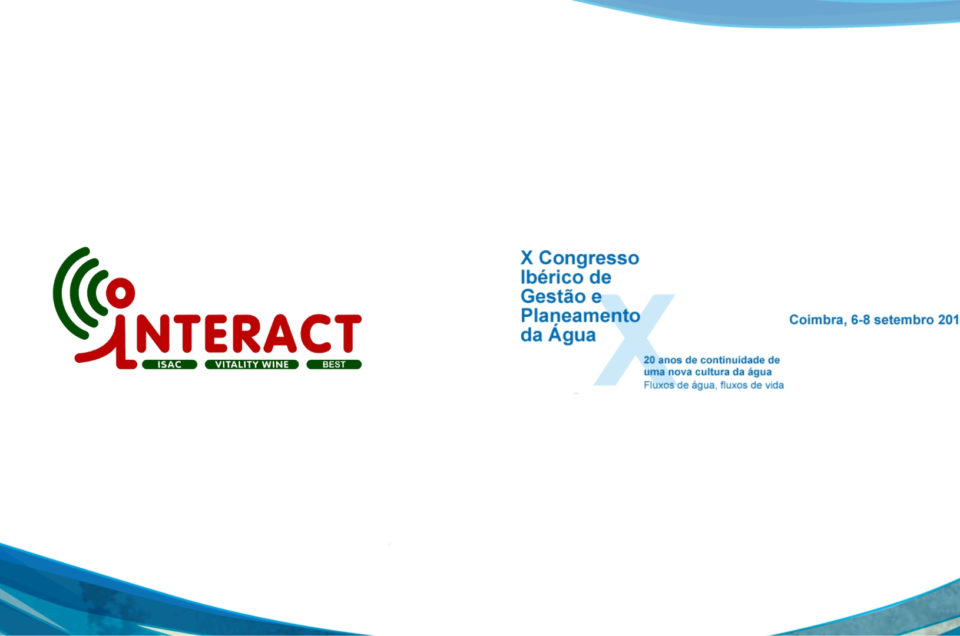INTERACT research fellows attend Iberian congress

Research fellows fom the INTERACT project (“Integrative Research in Environment, Agro-Chians and Technology”) will be at the 10th Iberian Congress on Water Management and Planning, in Coimbra. The event starts tomorrow (September 6th) in the Civil Engeneering Department of the Faculty of Sciences and Technology of the University of Coimbra.
Belonging to the BEST Resaerch Line (Bio-Economy and Sustainability), the fellows António Fernandes, Daniela Terêncio, Lisa Martins and Regina Santo will do four presentations that are the result of the research carried out throughout the project.
The four presentations focus on the water use in some situations or on pollution factors in watersheds or groundwater.
António Fernandes’ “statistical study”, entitled Models of Structural Equations as a tool for understanding the loss ecological integrity in surface waters”, uses, in the researcher’s view, “a simple and appealing model” to establish a relation of “variables” which may have “a greater impact on the loss of surface water quality”in the watershed of Ave River . The model uses a “methodology applicable to an other river watershed” and it’s possibile to state which sources of pollution require an intervention”, says the researcher.
Daniela Terêncio will present Sustainability and storage in the watershed scale for the use of agroforestry, based on the article published in the scientific magazine “Science of the Total Enviornment” last February. According to the research, it will be presented “a model that use rainwater in water lines, thus allowing them to be used for agroforestry purposes” and that can help in the creation of “water reserves for irrigation of agricultural crops or to help in the fight against forest fires”.
In her turn, Lisa Martins will do the presentation Use of flow and transport models to validate the risks of aquifer contamination: an approach in mountainous areas. According to the research, this study “represents a new approach to validation” which establishes a relationship “between the risk of water contamination and the concentration of nitrates, adjusted to the mountainous areas”. Martins considers the study “valuable for policy decisions on water resource planning”, since the “modeling exercise predicts which areas of the mountainous basin need “efective protection on groundwater quality”.
Regina Santos will focus on the use of water for domestic and agricultural use in the watershed of the Sabor River in the presentation Application of SWAT and Mike hydro basin in Analysis of hidrology and water allocation in the Sabor River Watersheed. One of the conclusion is that “the great consumption of water for irrigation occurs in the municipalities of Bragança, Macedo de Cavaleiros, Alfândega da Fé, Vila Flor and Torre de Moncorvo where olive groves, orchards and horticulture predominate”, says.
The presentions will take place over next Friday (September 7th).

























